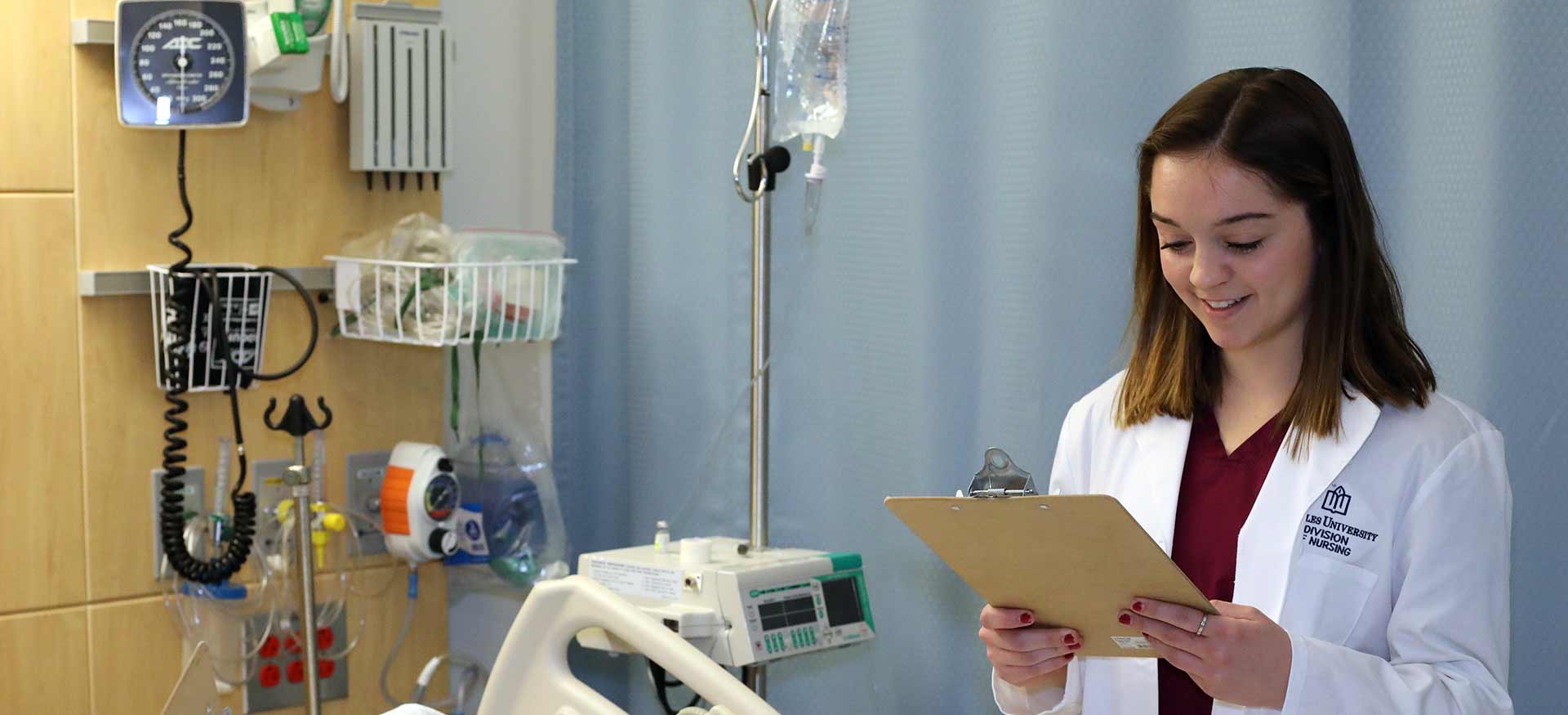Preceptor Information
The preceptor is an expert health care provider, clinician, nurse educator, information manager, or health care administrator who has an interest in teaching and mentoring. The preceptor facilitates student learning of the role and function of the advanced practice nurse, nurse educator, information manager or nurse executive.
Preceptors may include:
- Masters-prepared registered nurses
- Certified Registered Nurse Practitioners (CRNP), with national board certification and a minimum of one year of clinical experience
- Advanced Practice Nurses (APN)
- Clinical Nurse Specialists (CNS)
- Doctors of Medicine (MD)
- Doctors of Osteopathy (DO)
- Masters-prepared business practitioners who possess specialized expertise and who are appropriately credentialed in a particular field
Many of the benefits of precepting are intangible, intrinsic rewards based upon each individual. Preceptors often state that they enjoy sharing their knowledge and 'giving back' to the profession. The benefits of reviewing and seeking new knowledge, improving and gaining skills and honing critical thinking are mutually appreciated by both students and preceptors.
Precepting for DSU also includes the following benefits:
- 20% tuition discount on DNP, MBA, or Post-Graduate Certification courses taken at DeSales University (subject to conditions).
- A DeSales University e-mail account to access the online learning environment of the clinical student
- Remote and live access to Trexler library resources, databases, and DeSales University learning technology platforms
- A DeSales University bookstore discount of 10% on items purchased during the year
- Two tickets to both the Furphy and Marcon lectures, held on the DeSales University campus each fall and spring (respectively)
- Two tickets to a Department of Theater or Dance performance of your choosing, including the renowned Pennsylvania Shakespeare Festival plays
- Courtesy clinical faculty appointment
- Collegial relationships with DSU graduate nursing faculty
MSN & NP Preceptor Information
-
Tips and Pointers
Precepting can be a challenging and rewarding experience. Strategies and techniques for success and pitfalls to avoid may assist in achieving a mutually satisfying experience for both the preceptor and student alike.
Preceptors are encouraged to keep open communication with the coordinating nursing faculty. These faculty members are available to orient preceptors to course outcomes, student expectations, as well as the evaluation process.
Gaining insight into the student's reasoning and information processing is key to facilitating student progress toward the attainment of course outcomes. Some ways of achieving this are:
- Assess the student's knowledge: ask "What do you think is going on?"
- Ask for rationale: "What led you to that conclusion?"
Frequent and Constructive Feedback
Constructive feedback is information about the student's performance intended to guide their future performance. It should include:
- Reinforcement of what was done right: "You did a good job of..."
- What needs to improve: "You need more detail in your HPI..."
- What to do next time: "Next time this happens, try this..."
- "Taking over" for the student
- Giving inappropriate lectures
- Giving insufficient time to respond to questions; 3-5 seconds is recommended
- Expecting pre-programmed responses
- Giving rapid feedback that shuts down the student's thinking
- Pushing past the student's ability
-
Practicum Evaluation Tools
Routine practicum evaluation is performed to assure that all students have timely and beneficial formative and summative evaluations of their progression in the specialty MSN courses. For a student to pass their MSN specialty courses, they must complete the required number of practicum hours, attain satisfactory performance and achievement of course outcomes. Each program has a specific set of criteria which the preceptor should refer to throughout the evaluation process.
Students will:
- complete a written self-evaluation at the mid-point and end of each semester
- complete a site and preceptor evaluation at the end of each semester
Preceptors will:
- review, provide additional comments and sign the student's mid-point self-evaluation
- complete a final clinical evaluation with the student by the last day of the practicum rotation
Faculty will:
- provide formative evaluation to the student as close to the mid-point of the rotation as possible
- complete a site visit report, provide a signed copy to the student and place a signed copy to the practicum faculty member




